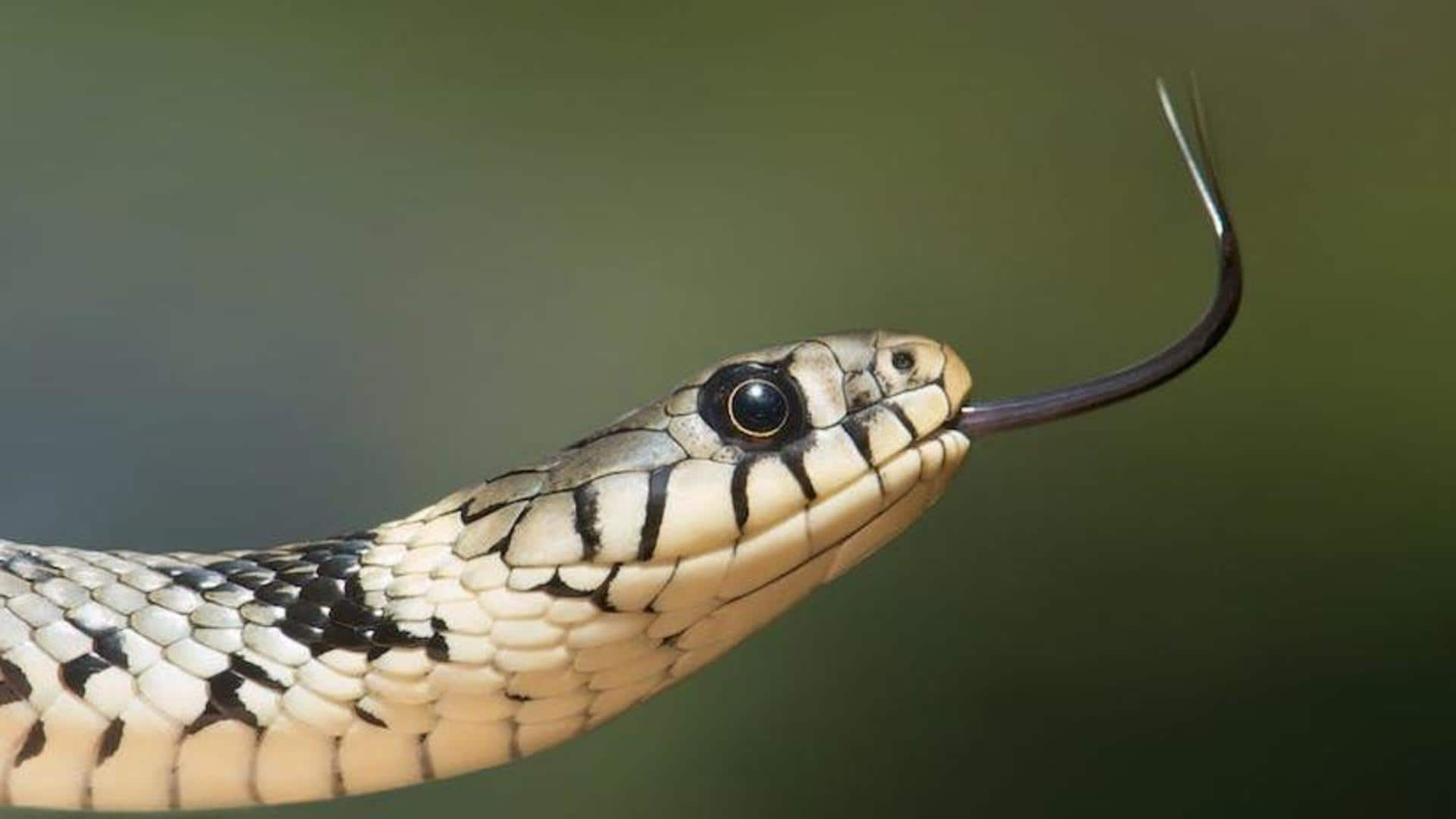
World Snake Day: Interesting facts about these venomous creatures
What's the story
Snakes are among the most venomous beings on the planet and among the most diverse too. Factually, there are over 3,500 species of these slithering creatures across the planet, to spread awareness about which we celebrate World Snake Day every year on July 16. Seizing this occasion, here are some mind-boggling facts about snakes that you probably never knew.
Fact 1
Snakes have been around for 100 million years
It has been found that snakes have evolved from four-legged reptile ancestors, possibly a lizard or a marine reptile called mosasaur, that was alive 100 million years ago! Paleontologists have discovered snake fossils dating to 150 million years. Additionally, they have also found some snake-like amphibians called "aistopods" that appeared in the fossil record over 300 million years ago.
Fact 2
They smell with their tongues
Although snakes have nostrils, they aren't used for sensing odor. Instead, they use their tongues and the roof of their mouths to smell something. Additionally, it is believed their sniffing abilities are quite strong! Their forked tongue has receptors that can instantly pick up multiple scents and chemicals from which they are made. They can even pick up from which direction scents are wafting.
Fact 3
Some snakes don't lay eggs but give birth
We all know that snakes lay eggs. However, did you also know that not all species do so? Some snakes instead give birth, especially those living in colder climatic conditions as their eggs won't survive the chilling temperatures. The males fertilize eggs inside the female. But, instead of laying the eggs, the female retains the eggs inside her until they hatch.
Fact 4
They aren't aggressive or terriotorial
Snakes are probably among the most misunderstood creatures in the world as they are believed to be aggressive or territorial. However, the reality is different. Snakes only bite when they are either hungry or feel threatened by someone. They are shy and secretive animals and are not the ones to pick the fight first. Serpents mostly enjoy solitude except when breeding.
Fact 5
They are solar-powdered
Snakes are cold-blooded but it does not mean that their blood is cold. The correct term is ectothermic, which means they rely heavily on external sources of heat for their survival. While birds and almost all mammal species can regulate their body heat to stay warm, snakes have to rely on the sun for the same and even to digest their food.